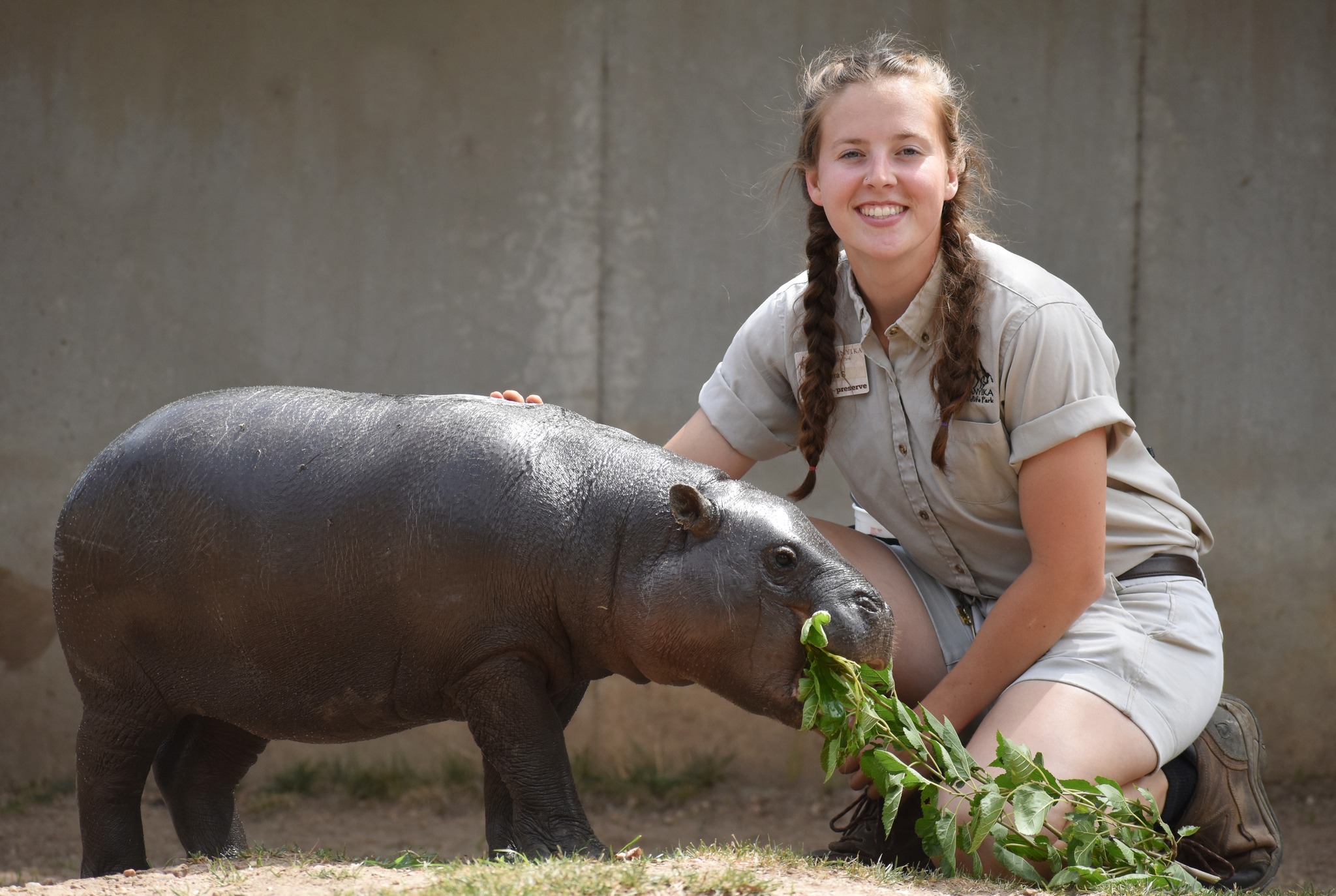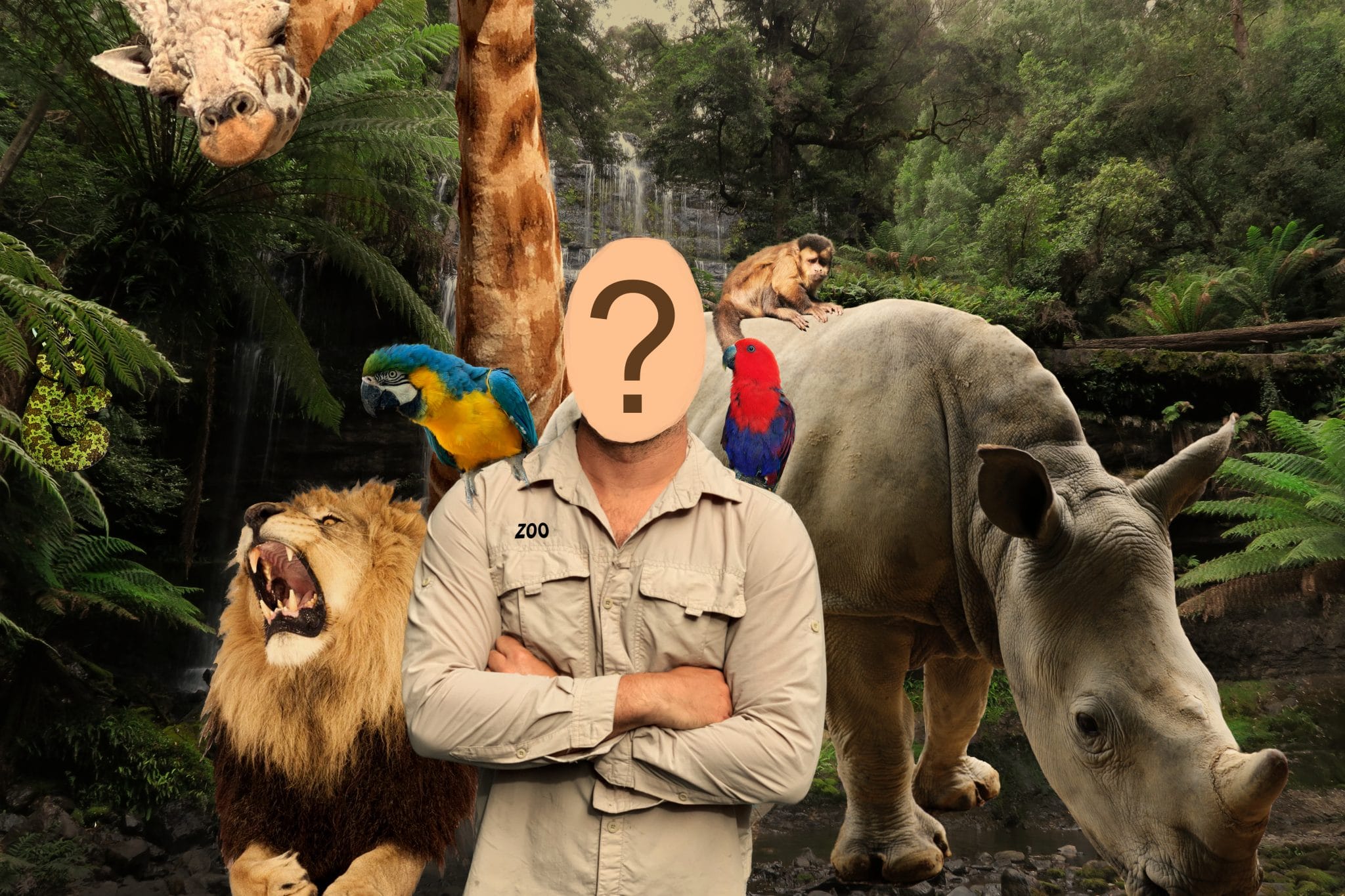The Life of a Zoo Keeper

The life of a zoo keeper is a demanding but rewarding one, filled with the unique opportunity to work closely with animals from all over the world. Zoo keepers are responsible for the well-being of their charges, ensuring they receive the proper care, nutrition, and enrichment they need to thrive.
Daily Routine
A typical day for a zoo keeper involves a variety of tasks, all focused on the health and happiness of the animals.
- Feeding: Zoo keepers prepare and distribute food to animals according to their specific dietary needs. This includes a variety of fresh fruits, vegetables, meat, and specialized diets for different species.
- Cleaning: Maintaining clean and hygienic enclosures is crucial for animal health. Zoo keepers spend time cleaning animal habitats, removing waste, and ensuring fresh bedding and water.
- Observing Animals: Zoo keepers carefully monitor the animals in their care, observing their behavior, eating habits, and overall health. They look for any signs of illness or distress and report any concerns to veterinarians.
- Enrichment Activities: Zoo keepers design and implement enrichment activities to stimulate the animals’ physical and mental well-being. These activities can include puzzle feeders, toys, and opportunities for exploration and social interaction.
Responsibilities
Zoo keepers play a vital role in the success of any zoo, and their responsibilities are wide-ranging:
- Animal Care: This is the primary responsibility of a zoo keeper. They administer medication, provide veterinary care, and ensure the animals are receiving the proper nutrition and enrichment.
- Habitat Maintenance: Zoo keepers maintain the animals’ habitats, ensuring they are clean, safe, and provide the appropriate environment for the species housed there.
- Public Education: Zoo keepers are often involved in educating the public about the animals in their care, sharing knowledge about their biology, behavior, and conservation needs.
- Research and Conservation: Zoo keepers may participate in research projects, contributing to the understanding and conservation of endangered species.
Challenges and Rewards
The life of a zoo keeper comes with its share of challenges, but the rewards are equally significant:
- Physical Demands: The work can be physically demanding, requiring lifting heavy objects, cleaning enclosures, and working in all types of weather.
- Emotional Attachment: Zoo keepers develop strong bonds with the animals in their care, which can be challenging when an animal becomes ill or dies.
- Working with Animals: Working with animals can be unpredictable, and zoo keepers must be prepared to handle a variety of situations.
- Working with Animals: Zoo keepers are constantly learning and growing, gaining valuable knowledge about animal behavior, care, and conservation.
- Making a Difference: Zoo keepers contribute to the welfare of animals and play a role in educating the public about the importance of conservation.
- Sense of Fulfillment: The opportunity to work closely with animals and contribute to their well-being can be deeply fulfilling.
Animal Welfare
Animal welfare is a top priority for zoo keepers. They strive to provide animals with the best possible care, ensuring they have:
- Adequate Space: Enclosures are designed to provide sufficient space for animals to move freely and engage in natural behaviors.
- Proper Nutrition: Zoo keepers ensure animals receive a balanced diet that meets their nutritional needs.
- Environmental Enrichment: Enrichment activities are provided to stimulate the animals’ physical and mental well-being.
- Veterinary Care: Zoo keepers work closely with veterinarians to provide preventive care and treat any illnesses or injuries.
Zoo Keeper Skills and Qualifications

Becoming a zoo keeper requires a unique blend of skills and qualifications. This profession demands a deep understanding of animal behavior, a strong commitment to animal welfare, and a passion for conservation.
Essential Skills and Qualifications
A successful zoo keeper possesses a diverse set of skills, including:
- Animal Care and Handling: Zoo keepers must be adept at handling animals safely and effectively. This involves understanding animal behavior, recognizing signs of illness or distress, and implementing appropriate care techniques. They must be comfortable working with a wide range of species, from small insects to large mammals.
- Animal Husbandry: This involves providing the best possible care for animals, including feeding, cleaning, and providing appropriate enrichment. Zoo keepers must understand the specific needs of each species and ensure their enclosures are clean, safe, and stimulating.
- Observation and Record Keeping: Zoo keepers are meticulous observers, carefully monitoring animal behavior, health, and diet. They maintain detailed records of their observations, which are essential for animal health and research.
- Communication and Teamwork: Zoo keepers work closely with other professionals, including veterinarians, researchers, and other zoo staff. Effective communication and teamwork are crucial for ensuring the well-being of the animals and the smooth operation of the zoo.
- Physical Fitness: Zoo keeping is a physically demanding job, requiring the ability to lift heavy objects, work in various weather conditions, and perform physically demanding tasks.
Educational Background and Training, Zoo keeper
While a formal education is not always mandatory, most zoo keepers have a bachelor’s degree in a relevant field, such as:
- Zoology: This degree provides a comprehensive understanding of animal biology, behavior, and ecology.
- Biology: A biology degree offers a strong foundation in the scientific principles underlying animal care and management.
- Wildlife Management: This degree focuses on the conservation and management of wild animal populations, equipping graduates with the skills needed to work in zoos and other wildlife settings.
- Animal Science: This degree provides a broad understanding of animal care, nutrition, and breeding practices.
After completing their education, aspiring zoo keepers often pursue internships or volunteer positions at zoos to gain practical experience. This hands-on training is essential for developing the necessary skills and knowledge to work with animals in a zoo setting.
Zoo Keeper Specializations
Zoo keepers often specialize in specific animal groups, such as:
- Mammals: Mammal keepers work with a wide range of species, from small rodents to large elephants. They must be knowledgeable about the unique needs of each species and provide appropriate care, including diet, enrichment, and veterinary care.
- Birds: Bird keepers specialize in the care of avian species, from small songbirds to large raptors. They must be familiar with the specific requirements of different bird species, including diet, housing, and breeding.
- Reptiles and Amphibians: Reptile and amphibian keepers care for a diverse group of animals, including snakes, lizards, turtles, and frogs. They must understand the specific needs of these species, including temperature and humidity requirements, and provide appropriate enclosures.
- Fish and Invertebrates: Fish and invertebrate keepers manage aquariums and exhibits featuring a variety of aquatic species, including fish, invertebrates, and amphibians. They must be knowledgeable about water quality, filtration, and the unique needs of each species.
Each specialization requires specific knowledge and skills, and zoo keepers must be prepared to adapt their expertise to meet the needs of the animals in their care.
Teamwork and Communication
Zoo keepers rarely work in isolation. They are part of a team that includes veterinarians, researchers, educators, and other zoo staff. Effective teamwork and communication are essential for:
- Coordinating animal care: Zoo keepers must work together to ensure that all animals receive the best possible care, including feeding, cleaning, and veterinary care.
- Sharing information: Zoo keepers must be able to communicate effectively with each other and other zoo staff to share information about animal behavior, health, and any changes in their care needs.
- Problem-solving: When challenges arise, zoo keepers must work together to find solutions that ensure the well-being of the animals.
Effective communication and teamwork are essential for the success of any zoo, and zoo keepers play a vital role in fostering these values.
The Role of Zoos in Conservation: Zoo Keeper

Zoos play a vital role in wildlife conservation and species preservation, working to protect endangered animals and their habitats. Beyond providing a safe haven for animals, zoos engage in various initiatives to ensure the long-term survival of threatened species.
Zoo Keepers’ Contributions to Research and Conservation
Zoo keepers are crucial contributors to research and conservation efforts. Their daily interactions with animals provide valuable data for scientific studies. This data helps scientists understand animal behavior, breeding patterns, and health issues, which are essential for developing effective conservation strategies.
- Zoo keepers collect data on animal behavior, such as feeding patterns, social interactions, and responses to environmental changes. This information helps researchers understand the species’ natural behaviors and identify potential threats to their survival in the wild.
- They monitor animal health and participate in health checks, providing insights into disease prevalence and the effectiveness of veterinary treatments. This knowledge aids in the development of preventative measures and the management of animal populations in both zoos and wild habitats.
- Zoo keepers contribute to breeding programs by carefully observing animals, identifying potential breeding pairs, and providing optimal conditions for successful reproduction. This helps to maintain genetic diversity within captive populations and ensure the long-term viability of species.
Examples of Successful Conservation Programs
Zoo keepers have played a pivotal role in the success of numerous conservation programs, demonstrating the impact of their dedication and expertise.
- The California Condor Recovery Program is a prime example of successful collaboration between zoos and conservation organizations. Zoo keepers played a crucial role in captive breeding programs, reintroducing captive-bred condors back into the wild, and monitoring their survival and reproductive success. This program has helped to increase the wild population of California Condors from a mere 22 individuals in 1987 to over 500 today.
- The Black-footed Ferret Recovery Program, another remarkable success story, involved zoo keepers in captive breeding programs, disease management, and reintroduction efforts. This program has helped to bring the black-footed ferret back from the brink of extinction, with wild populations now thriving in several states.
Zoo Conservation Contributions
Zoos contribute to conservation through various initiatives, each playing a vital role in protecting endangered species and their habitats.
| Conservation Initiative | Description | Example |
|---|---|---|
| Breeding Programs | Zoos maintain captive breeding programs for endangered species, ensuring genetic diversity and providing a safety net for populations facing threats in the wild. | The San Diego Zoo’s breeding program for the California Condor has been instrumental in increasing the species’ population. |
| Habitat Restoration | Zoos support habitat restoration projects in both captive and wild environments, creating suitable living conditions for animals and promoting biodiversity. | The Bronx Zoo’s Madagascar Conservation Project focuses on restoring degraded habitats for endangered species like the aye-aye and the radiated tortoise. |
| Public Awareness Campaigns | Zoos engage in public education and outreach initiatives, raising awareness about conservation issues and inspiring action to protect wildlife. | The National Zoo’s “Endangered Species” exhibit showcases the plight of threatened animals and encourages visitors to support conservation efforts. |
Being a zoo keeper is a truly amazing job! You get to work with incredible animals every day and learn so much about them. Sometimes, though, you just need a good laugh to unwind after a long day, and that’s when you can check out Adam Sandler’s new special for a good dose of humor.
After a few laughs, you’ll be ready to head back to the zoo and care for your furry friends!
Being a zoo keeper is a truly amazing job! You get to work with incredible animals every day, and you’re constantly learning about their fascinating behaviors. It’s a demanding role, but the rewards are immeasurable. One thing that always gets me pumped up for work is listening to some classic rock, like van halen.
Their high-energy music is the perfect soundtrack for a day of caring for these magnificent creatures. There’s nothing quite like seeing a lion roar to the beat of “Jump”!
